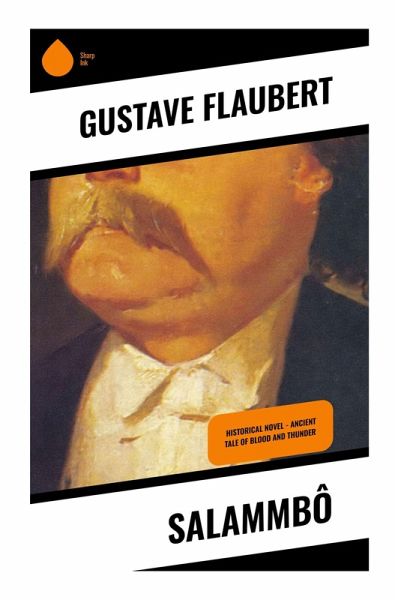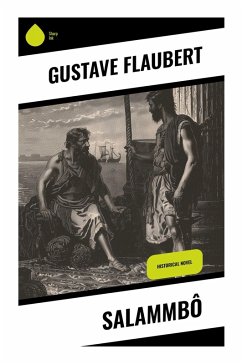
Salammbô
Historical Novel - Ancient Tale of Blood and Thunder
Versandkostenfrei!
Versandfertig in 6-10 Tagen
11,90 €
inkl. MwSt.

PAYBACK Punkte
0 °P sammeln!
Gustave Flaubert's "Salammbô" is a historical novel set in ancient Carthage during the aftermath of the First Punic War. Renowned for its lush, evocative prose and meticulous attention to detail, the novel immerses the reader in a world rich with sensory experiences and vivid images. The narrative intricately weaves themes of love, power, and conflict, showcasing Flaubert's stylistic hallmark of precision and restraint. The book also serves as a reflection of Flaubert's engagement with historical realism, as he draws from sources like Polybius and Appian to reconstruct the tumultuous events a...
Gustave Flaubert's "Salammbô" is a historical novel set in ancient Carthage during the aftermath of the First Punic War. Renowned for its lush, evocative prose and meticulous attention to detail, the novel immerses the reader in a world rich with sensory experiences and vivid images. The narrative intricately weaves themes of love, power, and conflict, showcasing Flaubert's stylistic hallmark of precision and restraint. The book also serves as a reflection of Flaubert's engagement with historical realism, as he draws from sources like Polybius and Appian to reconstruct the tumultuous events and culture of ancient civilizations, creating a captivating backdrop for his characters' dramatic fates. Flaubert, a pivotal figure in 19th-century literature, is often celebrated for his exploration of the human condition through an intellectual lens. His fascination with antiquity, paired with an acute awareness of the socio-political narratives of his time, propelled him toward crafting "Salammbô". This novel allowed him to experiment with narrative form and style, diverging from his more renowned works like "Madame Bovary" while still emphasizing his profound commitment to artistic perfection. For readers who revel in richly detailed historical narratives, "Salammbô" offers a compelling exploration of human desires against a backdrop of cultural conflict. Its intricate characterizations and philosophical depth make it not only an essential contribution to the canon of world literature but also a fascinating journey into the complexities of ancient life. This book is a must-read for those interested in the intersection of history and literature.












